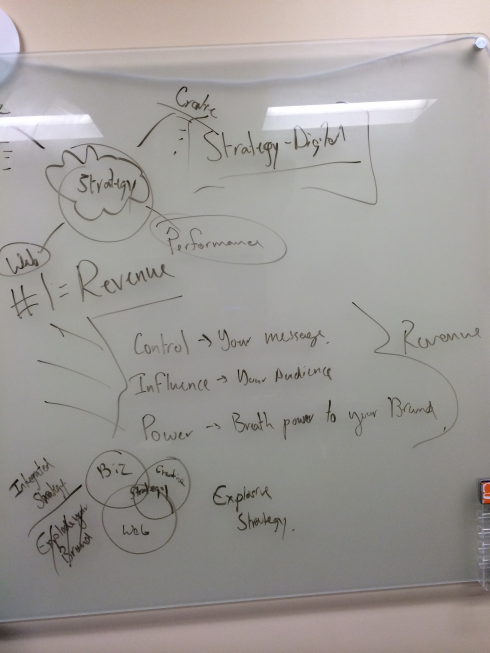
Every week, I present and educate prospective clients on content solutions, along with many other digital tactics. Being on the front lines communicating with companies and marketing executives about what they have tried, what was recommended to them, or what a competing agency is recommending, I see the reasons why some companies have failed or struggle to associate true value to content marketing.
One of these reasons is that companies, and those presenting these solutions, are failing to recognize the most important aspect of content marketing—that it is a form of communication and not just promotion. It makes sense: If content is our way of communicating with people online, content is therefore our way of communicating offline, too.
The problem with most forms of content I see produced is that they have great facts, tips, opinions, and recommendations, but they do not communicate the real message very well or at all. When you want to close business with a client, really communicating is key. So, below, I’ve provided tips on how you can supplement your content marketing with effective communication to drive business.
Tip #1: Stop trying to be cute with your content marketing.
Communicate something worth listening to, in the way your customer wants to hear it. All the content you should be producing and buying should be for a defined purpose. Producing cool premium forms of content that do not satisfy a need for the person handing over the money to your company will often fall short because your client is not realizing a return.
Now don’t get me wrong, there could be audience segments that are not customers you want to reach that should have a different set of metrics for determining ROI, but the premise is the same. If you haven’t tried understanding or finding out how your customer wants to hear it, then you have failed at one of the first stages of content marketing.
It’s never too late to start understanding the communication strategy for the people who spend, will spend, and have spent money with your company/client. There are many different preferred methods of communication by people in general, so you should have ready different strategies for communicating to different groups, and different strategies for communicating the same message in different ways.
Tip #2: Don’t assume. Ask if the message was understood and communicated effectively.
Taking the time to make sure your message was communicated and that it was valuable will create the experience that will turn your audience into a marketing vehicle for your company. Not to mention that it helps build the rapport and trust required for a transaction or conversion. Even something as simple as “Does make sense?” or “Was this effective for you?” can go a long way in getting to the root of good communication.
There is only one thing worse than the monetary cost of failed content marketing campaigns: the opportunity cost of not winning the business, repeat business, or whatever the metric of conversion is for the audience group. Time is the ultimate currency in all of our lives, and as professionals, the efficiency of this currency is what separates the elite from the average. This is why I believe that taking the time to ensure a message was understood is the optimization element within our content communication.
Do not be afraid to try things that you have tried before, either. I have success in communicating with our clients because I always try to paint a picture. It is more important that your audience understands the “Why” than the “How.” If those are closely married to each other, people will usually be able to connect the dots.
A good rule of thumb is to always ask yourself “So what?” after you communicate something. This will usually help you always make sure your message fits your audience’s point of view.
Tip #3: Pay attention to the experts.
I’m a big fan of many digital marketers and wish I could name them all, but one I am going to point out in this blog is Joe Pulizzi. He recently gave a great presentation that has some fresh examples and data of using content marketing for effective communication:
All in all, in your next attempt to pitch content marketing as a solution, remember the following takeaways:
- Content marketing is communication, not advertising.
- Understand WHY you are producing content and for whom.
- Have a clear strategy to deliver your content to your audience.
- Know what content your customers/clients want to read and how they want to read it.
- Know your metrics for determining success in your content marketing efforts.
- Optimize your communication strategy to your audience, and take time to ask them for feedback.
- Don’t be afraid to be direct; short and sweet is effective and saves time.
- Produce content that serves a purpose and satisfies your audience’s needs.
- Your content marketing strategy shouldn’t only exist online—take it offline as well. This helps bring good content online.
- Try new things and be different (strategically, not tactically).
How do you use content marketing to communicate with your clients? Send me your tips and advice by commenting below.


